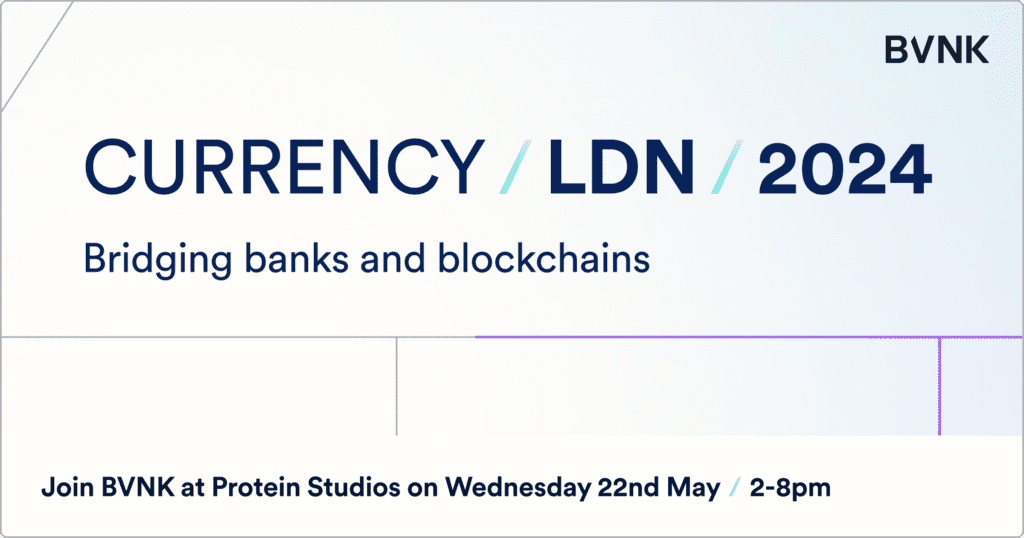
ComplyAdvantage Acquires Golden, Expanding Financial Crime Intelligence Offering
ComplyAdvantage acquires Golden to enhance its AI-driven financial crime risk management solutions with advanced data integration capabilities

ComplyAdvantage acquires Golden to enhance its AI-driven financial crime risk management solutions with advanced data integration capabilities

A look inside the innovative work of the ESG working group, as it creates the first greenhouse gas emissions standard designed specifically for the payments industry

Open banking is helping to revolutionise financial services access via APIs, enabling secure data sharing and fostering innovation in the banking industry

Initial assessments of the FCA’s Consumer Duty show that while financial firms have made positive strides in improving practices for consumer outcomes, further improvements and deeper integrations are necessary.

As real-time payment adoption grows, 50% of European firms are already involved, with another 42% planning to join, highlighting the balance of challenges and benefits in managing financial crime.

Instant payments are rapidly transforming the transaction landscape, supported by a global increase in payment rails and advanced services, despite facing challenges from fraud and regulatory demands.

We’d like to invite fellow Payments Association members to join BVNK and guests including Chainalysis, FIS, Worldpay and more on 22 May for Currency LDN, as we look at how

Globally, B2B travel transaction volumes are projected to reach $1.7 trillion by 2027 with the APAC (Asia Pacific) region in the lead as the fastest-growing market expected to reach $480

About Optty Optty is at the forefront of revolutionising the global payments industry, providing seamless, innovative, and secure payment solutions to partners and merchants around the world. Leveraging a cloud-based

About Equals Money Equals Money is a multi-currency payments, cards and accounts provider which supports the payments industry to deliver on its ambitions. Transforming business through its all-in-one platform, Equals

Swift’s recent collaborative experiments with 38 global institutions demonstrated new use cases for its CBDC interlinking solution across digital trade, securities and foreign exchange.

The Payment Systems Regulator (PSR) has set 7 October 2024 to implement the new mandatory reimbursement rules for victims of authorised push payment (APP) fraud. Why it matters The proposed

VE3 has been selected as a key supplier for the Payment Acceptance 2 Agreement by Crown Commercial Services for the provision of payment consultancy services.

Sanctions and counter-terror finance (CTF) screening have become a more demanding area of compliance. Sanctions lists used to be relatively static. Following the Russian invasion of Ukraine, they are now

Unveiling the complexities and optimisation opportunities in the card payments industry’s operational landscape.

Guavapay, a UK-based fintech, has appointed Laura McCracken as a non-executive director

Chargebacks911 has appointed Roger Alexander as advisor to the board and CEO, leveraging his expertise to combat the rise of APP fraud in the UK.

Thames Technology has announced a strategic partnership with Ellipse to offer dynamic security code technology Thames Technology, a provider of payment solutions, has announced a strategic partnership with Ellipse World,

ProID and Monet+’s free virtual conference will delve into the evolving landscape of digitalisation in critical sectors, focusing on the impact of new EU eIDAS 2.0 regulations on digital identity and electronic signatures.

PSPs must enhance their end-to-end reconciliations to deliver seamless, efficient payment services and stay competitive in the rapidly evolving fintech landscape

Conversations around a digital pound are growing louder as the weeks roll by. With use cases popping up around the globe, is it time Britain followed suit? In a similar fashion to the way coins largely made way for banknotes, digital currency is the next natural progression in the evolution of money, whether consumers like the idea of it or not.

As the crypto market continues to innovate and grow, governments and regulators around the world are struggling to keep pace. The constantly shifting policy and regulatory landscape is also challenging

With less than five months to go before the first set of Consumer Duty annual board reports must, at the latest, be presented to managing bodies, work is, or should

AI has been a hot topic in the financial services sector for some time and the topic keeps gathering momentum. It is clear, AI has many potential use cases, such as: helping firms scale up their business; making better informed strategic business decisions; and supporting the efficient and effective delivery of regulatory compliance to name just a few potential use cases.

Exploring how the payments industry can innovate to mitigate the UK’s cost of living crisis, this article highlights fintech’s role in aiding the newly underserved towards financial resilience and inclusivity

In an era where customer focus, innovation, and the challenge of profitable growth take center stage, the payments industry faces a pivotal transformation, signalling the end of ‘easy growth’ for traditional giants

American Express has launched ‘Plan It’ – a new offering for the UK market that allows credit Cardmembers to pay off purchases on their statement, or a portion of their monthly bill, in instalments.

In its recent annual briefing on financial services regulation and enforcement for 2024, Baker McKenzie details the anticipated developments and enforcement trends within the sector. Titled “What does 2024 hold?

TerraPay, a company specialising in global cross-border payments, has recently been granted a Major Payment Institution (MPI) License by the Monetary Authority of Singapore (MAS). This development is part of

Fintech company Unlimit has announced its entry into the Tanzanian market and received the Bank of Tanzania (“BOT”) licence, marking another significant step in its regional expansion. The BOT’s approval

Leaders of companies operating in the payment technology landscape are well-accustomed to the challenges of complex regulations set by various governing bodies. Whether the companies are established financial institutions or agile fintech start-ups, navigating this terrain requires much effort.

Exploring how to combat AI-powered identity fraud without reverting to outdated physical verification methods, amidst a rising tide of sophisticated fake ID creation tools

Launched in 2020, IPF is a low-code payment framework that aims to empower business payment experts to create industry-leading workflows and enable software engineering teams to quickly extend and create

There have been lots of discussions recently surrounding open banking. It’s bringing innovation to the financial world by opening up access to bank accounts. Yet, the technology is still in

In recent years, the global financial landscape has undergone a notable transformation, characterised by a discernible decline in correspondent banking relationships. Several different factors highlight this shift, each contributing to

Recent findings by PwC reveal that in the past two years, over half of all businesses have faced incidents of fraud, corruption, and other economic crimes. Additionally, 49% of CEOs

Payment compliance and risk management is expensive and time-consuming due to its multifaceted and idiosyncratic nature. There is no one-size-fits-all solution. The state of risk and compliance is ever-changing, and

Financial inclusion, as defined by the World Bank, is crucial for economic development and social progress, ensuring equal access to financial products and services tailored to the needs of both individuals and businesses. The United Nations emphasises financial inclusion as a crucial driver of economic and social development, evident in its inclusion as component eight of the 17 Sustainable Development Goals for 2030.

In an increasingly interconnected world, global commerce has become the lifeblood of the modern economy. Businesses of all sizes are expanding their reach beyond borders, opening up new opportunities and markets. However, the traditional financial systems have often lagged behind the speed and efficiency demanded by the globalised marketplace. Enter cross-border real-time payments—a concept that is reshaping international trade by breaking down barriers and providing a boost to global commerce.

In the first half of 2023, UK Finance reported authorised push payment (APP) fraud losses amounting to £293.3 million, with the total number of APP cases increasing by 22%. The nature of authorised push payment (APP) fraud was harrowing – victims were willingly initiating and authorising payments into controlled accounts, often driven by criminal manipulation or misinformation.

Trust Payments’ CEO Daniel Holden sat down with the Payments Association’s reporter George Iddenden to discuss the benefits of converged commerce and how businesses are leveraging unified technology to streamline transactions and enhance customer satisfaction.

2023 research by American Express reveals that late payments are a significant challenge for UK finance professionals, driving a shift towards digitizing B2B payments to improve efficiency and cash flow.

Since 2019, the UK’s banking sector has been refunding customers who become victims of authorised push payment (APP) scams, causing heated debate among industry professionals who believe the responsibility should lie elsewhere.
This year, rules laid out by the Payment Systems Regulator (PSR) in 2023 will come into force. The rules stipulate that both the sending and receiving firms should hold equal liability when reimbursing fraud victims in most cases. The rules have received widespread criticism from insiders and industry bodies alike. UK Finance has hit out at the PSR’s rules, which avoid the mention of Big Tech in the conversation.

HSBC’s January launch of Zing, an e-money institution and standalone money transfer app, is something of a strategic departure for the global banking behemoth for a number of reasons.
What it may imply for the bank strategically and what it signals for the future of international money transfers, fees, and product development are all valid questions. The true motivations behind the launch are likely more nuanced than may seem likely at first glance or that the bank may have you believe.

In 2021, the Financial Conduct Authority (FCA) Business Plan made clear its intent to apply a more intensive assessment with greater scrutiny of financial information and business models. This is being particularly felt in the payments space.

There is an increasing need for enhanced data sharing in the payments industry to combat the rising threat of financial crime, specifically money laundering and online-enabled fraud.

Andrew Novoselsky, Chief Product Officer at SumSub explores why Payment fraud poses a substantial challenge to the payments industry, and why its severity is anticipated to escalate in the coming years.

As the pace and scope of cross-border payments continue to accelerate, it’s becoming increasingly clear that the payment industry’s approach to compliance must also evolve—and take centre stage.
The Payments Association
St Clement’s House
27 Clements Lane
London EC4N 7AE
© Copyright 2024 The Payments Association. All Rights Reserved. The Payments Association is the trading name of Emerging Payments Ventures Limited.
Emerging Ventures Limited t/a The Payments Association; Registered in England and Wales, Company Number 06672728; VAT no. 938829859; Registered office address St. Clement’s House, 27 Clements Lane, London, England, EC4N 7AE.







Log in to access complimentary passes or discounts and access exclusive content as part of your membership. An auto-login link will be sent directly to your email.
We use an auto-login link to ensure optimum security for your members hub. Simply enter your professional work e-mail address into the input area and you’ll receive a link to directly access your account.
Instead of using passwords, we e-mail you a link to log in to the site. This allows us to automatically verify you and apply member benefits based on your e-mail domain name.
Please click the button below which relates to the issue you’re having.
Sometimes our e-mails end up in spam. Make sure to check your spam folder for e-mails from The Payments Association
Most modern e-mail clients now separate e-mails into different tabs. For example, Outlook has an “Other” tab, and Gmail has tabs for different types of e-mails, such as promotional.
For security reasons the link will expire after 60 minutes. Try submitting the login form again and wait a few seconds for the e-mail to arrive.
The link will only work one time – once it’s been clicked, the link won’t log you in again. Instead, you’ll need to go back to the login screen and generate a new link.
Make sure you’re clicking the link on the most recent e-mail that’s been sent to you. We recommend deleting the e-mail once you’ve clicked the link.
Some security systems will automatically click on links in e-mails to check for phishing, malware, viruses and other malicious threats. If these have been clicked, it won’t work when you try to click on the link.
For security reasons, e-mail address changes can only be complete by your Member Engagement Manager. Please contact the team directly for further help.